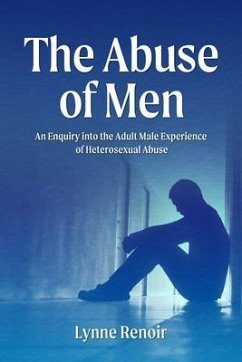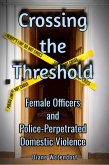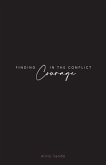Do men suffer in their intimate relationships?
This study by Lynne Renoir suggests they do. Men in Australia and New Zealand reported all kinds of abuse from their female partners, including physical, emotional, and sexual.
Renoir's study found that women are more likely than men to use weapons. They will throw heavy objects, hit their partner with a fist, kick, bite, choke or stab him, or destroy his property. Women would threaten to harm their children, or to disappear, taking the children with them.
The various forms of emotional abuse included preventing the man from contacting his family or friends. The woman would claim that his children were not his, criticise his intellect or his body shape, pick on him for the slightest mistake, or humiliate him in front of others.
Some women used sex as a means of control, withholding sex in order to punish the man for perceived shortcomings. Alternatively they would demand sex at the most inappropriate times.
An abused man will blame himself for being inadequate. He will feel he has failed to exhibit masculine characteristics such as strength, independence, and the ability to cope with adversity. His situation is exacerbated by the reaction of others. His story can be met with scepticism or disbelief on the part of the police, legal institutions, or even members of the helping professions. Abused men are often reluctant to leave their partners because they are fearful for the welfare of their children, who themselves can be victims of abuse.
Help is not provided for abused men. There are very few "men's shelters", as it is assumed that only women can be the victims of abuse. Men are supposed to be able to take whatever a woman might throw at them. Because of prevailing attitudes towards men generally, in society today abused men are rendered powerless.
Renoir's call is is for governmental authorities to recognize the plight of men in abusive relationships and to take action to remedy the wrong that has been done to them.
This study by Lynne Renoir suggests they do. Men in Australia and New Zealand reported all kinds of abuse from their female partners, including physical, emotional, and sexual.
Renoir's study found that women are more likely than men to use weapons. They will throw heavy objects, hit their partner with a fist, kick, bite, choke or stab him, or destroy his property. Women would threaten to harm their children, or to disappear, taking the children with them.
The various forms of emotional abuse included preventing the man from contacting his family or friends. The woman would claim that his children were not his, criticise his intellect or his body shape, pick on him for the slightest mistake, or humiliate him in front of others.
Some women used sex as a means of control, withholding sex in order to punish the man for perceived shortcomings. Alternatively they would demand sex at the most inappropriate times.
An abused man will blame himself for being inadequate. He will feel he has failed to exhibit masculine characteristics such as strength, independence, and the ability to cope with adversity. His situation is exacerbated by the reaction of others. His story can be met with scepticism or disbelief on the part of the police, legal institutions, or even members of the helping professions. Abused men are often reluctant to leave their partners because they are fearful for the welfare of their children, who themselves can be victims of abuse.
Help is not provided for abused men. There are very few "men's shelters", as it is assumed that only women can be the victims of abuse. Men are supposed to be able to take whatever a woman might throw at them. Because of prevailing attitudes towards men generally, in society today abused men are rendered powerless.
Renoir's call is is for governmental authorities to recognize the plight of men in abusive relationships and to take action to remedy the wrong that has been done to them.
Dieser Download kann aus rechtlichen Gründen nur mit Rechnungsadresse in A, D ausgeliefert werden.









